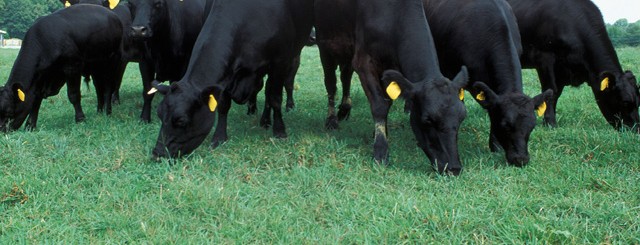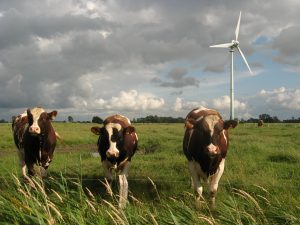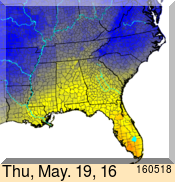Livestock
-

Cattle are big business in Alabama with a value of $2.5 billion. The Alabama Cooperative Extension System’s new iBook, “Beef Basics,” will help the state’s cattle producers boost their bottom line. An Alabama Extension animal scientist calls “Beef Basics” an exciting new tool for Alabama cattle producers. Now available to download for free from the Apple…
Posted in: Livestock -

For those of you wondering how to know when to expect high levels of heat stress on livestock, the USDA has a great web site which contains daily heat stress maps for the US for up to a week ahead. Today’s forecast for Monday June 13 shows high levels of heat in a large area of…
-

It’s a hot one out there today! If you have livestock, you may be concerned with the impacts of heat stress on your animals. But you also need to be concerned with the impacts of the hot conditions on your workers. Milk Business provided a timely article this week on the requirements for keeping workers…
-

The Sustainable City Network posted an intriguing article today on the potential for increasing cattle production reducing the emission of greenhouse gases, based on new research from Iowa State researchers. The potential to reduce carbon emissions comes from switching land from production of row crops like corn to pastures, which would reduce erosion and loss…
-

AgWeb posted an interesting story earlier this week about problems that farmers in the Pacific Northwest are having growing alfalfa this year. Spring has been very warm and that has caused the crop to mature earlier, which the author said resulted in stems growing at the expense of leaves. This means that while tonnage is…
-

A new study that was published recently in Geophysical Research Letters shows that “Emissions from farms outweigh all other human sources of fine-particulate air pollution in much of the United States, Europe, Russia and China, according to new research. The culprit: fumes from nitrogen-rich fertilizers and animal waste combine in the air with combustion emissions…
-

Now that hot summer temperatures are coming on, you might need information about the likelihood of heat stress injury to your livestock. USDA has a set of forecast maps which show the likelihood of heat stress each day for the next week based on weather forecast models (the forecasts are produced as a partnership with the National Weather…